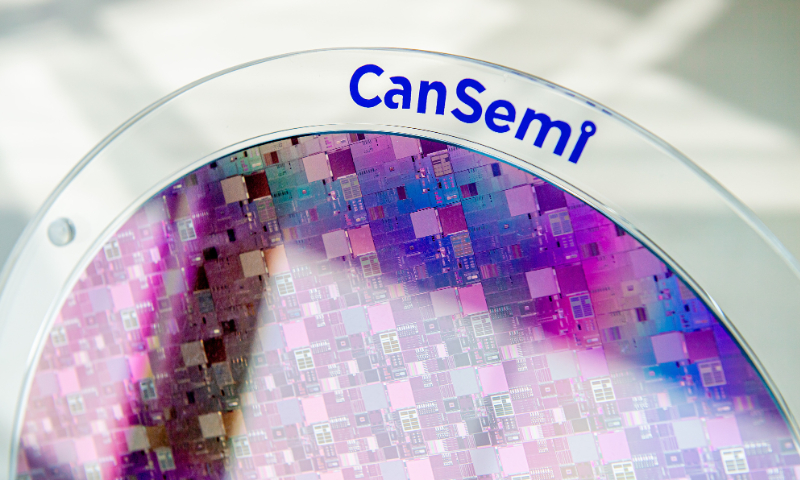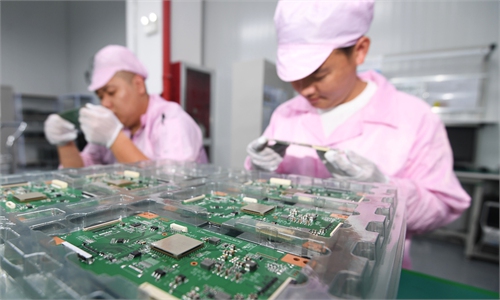
Photo: VCG
Guangzhou CanSemi Technology Inc started phase III construction of its semiconductor project on Thursday in Guangzhou, South China's Guangdong Province, with an investment of 16.25 billion yuan ($2.4 billion), China Central Television (CCTV) reported.
The new phase will generate production capacity of 40,000 wafers per month, with products focusing on industrial and vehicle chips, CCTV reported.
CanSemi is the only 12-inch wafer maker that has entered mass production in Guangdong Province. According to the company, its capacity will ramp up to 80,000 12-inch wafers per month after all three phases of the project are completed, aiming to provide power management chips, mixed-signal chips and others for Internet of things (IoT) applications and the automotive market in the Greater Bay Area.
A total of 37 billion yuan will be invested in the three-phase semiconductor project. The first and second phase projects have been completed and put into operation, the company said.
The project's phase I focuses on 180-90 nanometer (nm) lithography processes, and phase II focuses on 90-55nm, while phase III will be 22nm, according to the company's website.
Beijing-based chip maker Hercules Microelectronics on Thursday launched a new product - H3C08 - which is the first domestic FPGA chip based on the 22nm lithography process that has successfully entered mass production, according to a statement the company released via its WeChat account.
The US has been constantly accelerating its crackdown on China's high-tech areas, with semiconductor technology being the main target.
One of the latest moves by the US was launching its so-called CHIPS and Science Act, which aims to provide a total of $52.7 billion for American semiconductor research, development, manufacturing and workforce development.
Besides offering massive subsidies, some of the items in the Act put restrictions on the normal economic, trade and investment activities of relevant American enterprises in China and are obviously discriminatory, Shu Jueting, spokesperson for the Ministry of Commerce, said at an online press briefing on Thursday.
It seriously violates market laws and international economic and trade rules, which will distort the global semiconductor supply chain and disrupt international trade, Shu said.
Just days after US President Joe Biden signed the CHIPS and Science Act into law, Washington further announced export controls for electronic design automation (EDA) technology, a key software used to design 3-nanometer and more advanced chips. It has been widely viewed as a move to set barriers in China's way in developing advanced semiconductors.
Experts noted that the US tech blockade toward China has never succeeded, and will only push Chinese developers to speed up self-innovation, which would not be good news for high-tech developers from the US and its allies.
China is the largest integrated circuit market in the world, consuming about two-thirds of the world's semiconductor output, according to media reports.


